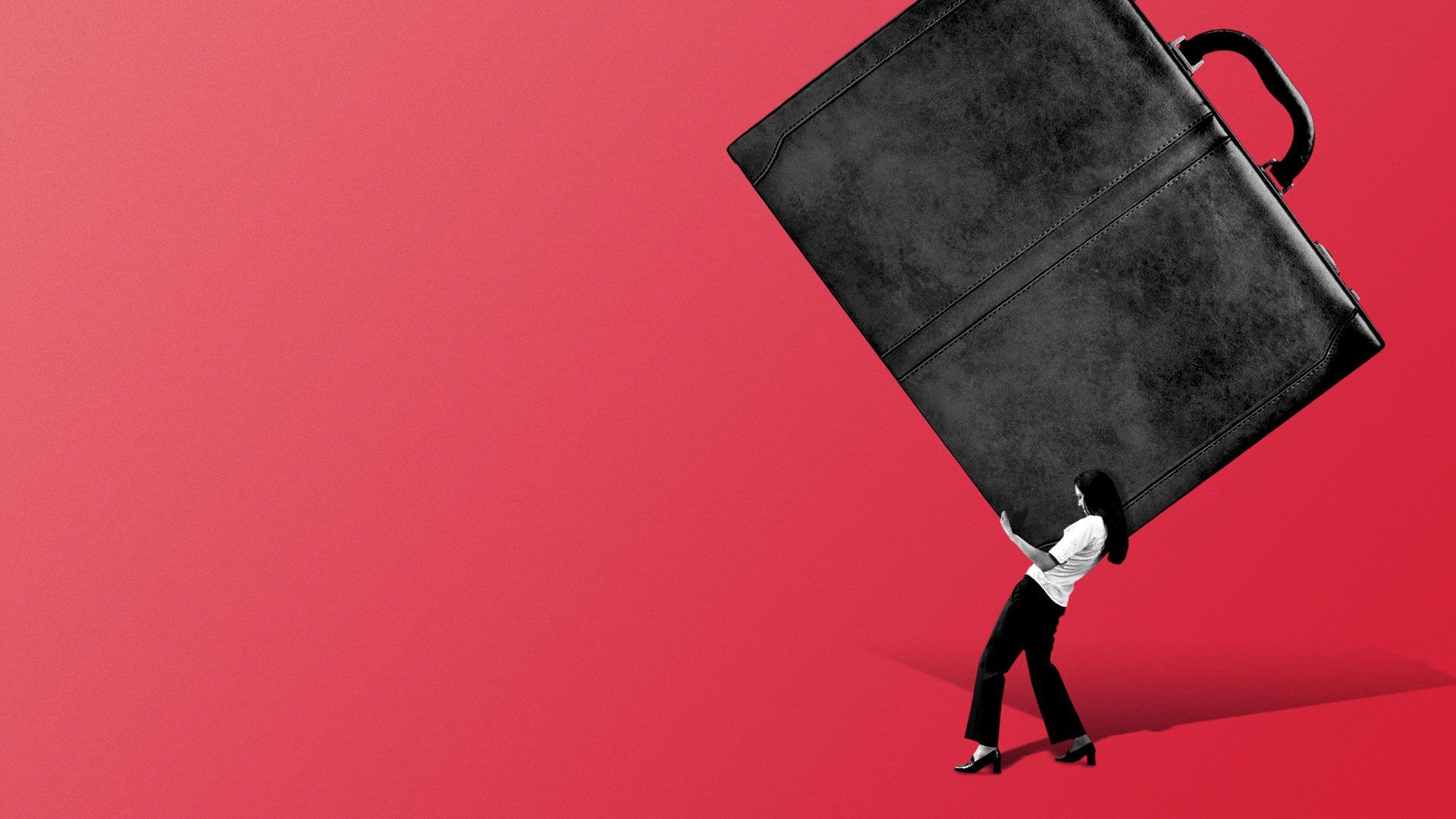Survey: Underrepresented employees face greater work challenges during pandemic
Add Axios as your preferred source to
see more of our stories on Google.

Illustration: Eniola Odetunde/Axios
People of color, women and LGBTQ+ employees report greater difficulties working during the pandemic, according to a McKinsey report released last week.
Why it matters: Existing inequities have only been exacerbated by the pandemic. The disproportionate effects on these communities won't disappear as COVID-19 continues to ravage the world.
The big picture: Compared to their peers in the 11 countries surveyed, underrepresented employees shared greater:
- Concerns about job opportunities.
- Mental health challenges.
- Anxieties with work-life balance and workplace health and safety.
- Loss of connectivity and belonging.
Around the world:
- The gap between women and men was most represented in concerns about mental health and household responsibilities: women were 1.5 more likely than men to report “significant” challenges in both arenas.
- Among LGBTQ+ people, challenges with workload increases and fair performance evaluation were most frequently cited compared to straight and cisgender employees.
- The disparity between people of color and white people was greatest in reported challenges with household responsibilities.
The number of acute challenges cited by underrepresented employees was higher in emerging economies.
- On average, underrepresented employees in the U.S. reported experiencing 1 to 2 of the challenges in the above list. In India, it was 6 to 7; in Brazil, 5 to 6.
Yes, but: Differences in experiences between people of color and white people are “particularly stark” in the U.S., the report said.
- A smaller proportion of people of color report challenges in the U.S. than in Brazil, but “the gap relative to their white counterparts is much greater.”
Context: People of color are overrepresented in frontline occupations, making them more vulnerable to infection and burnout.
- In the U.S., Black, Latino, Native and Asian Americans are still more likely to die from COVID-19 than white people, the Washington Post reports.
What they’re saying: The fact that these disparities exist around the world, regardless of healthcare system, shows “a global pattern,” said William Spriggs, chief economist at the AFL-CIO, the U.S.’s largest federation of unions.
- France and the UK have universal health care, but the gaps in experience are showing up there, too, Spriggs noted. This represents a failure to protect workers, he added.
- "We do know that in the UK as in the United States, a disproportionate share of the frontline workers are Black or Asian or some other ethnic minority, and they suffer the same disparities in death by race that we do in the U.S. because they have the same disparities in who does the frontline risky jobs."
The bottom line: As companies focus attention on diversity and equity in light of this year’s Black Lives Matter protests, it'll be critical to address the gap in employee experiences heading into an uncertain pandemic future.
Methodology: McKinsey conducted global surveys with 1,122 executives and 2,656 employees across 11 countries from Aug. 19 to Sept. 1. The survey sample spanned Australia, Brazil, Canada, China, France, Germany, India, Ireland, Mexico, the United Kingdom and the United States.
